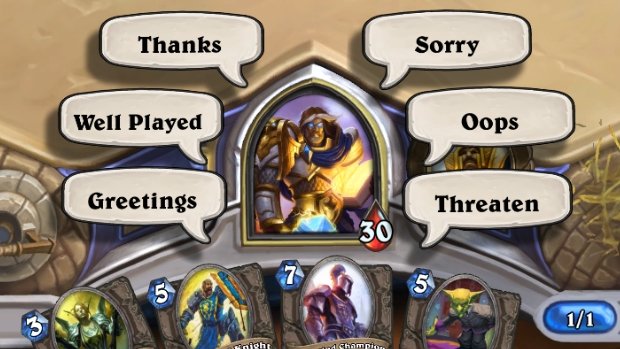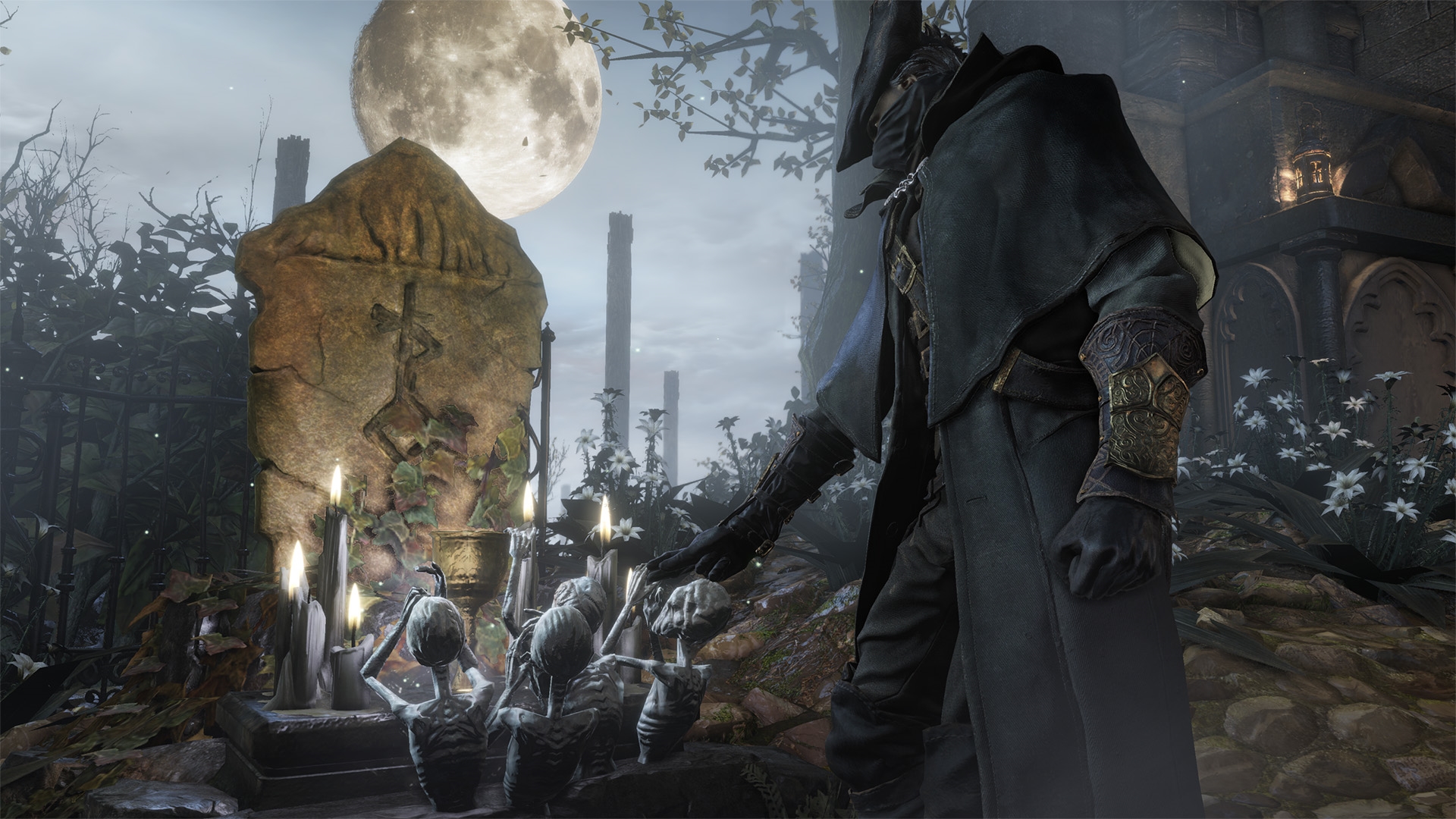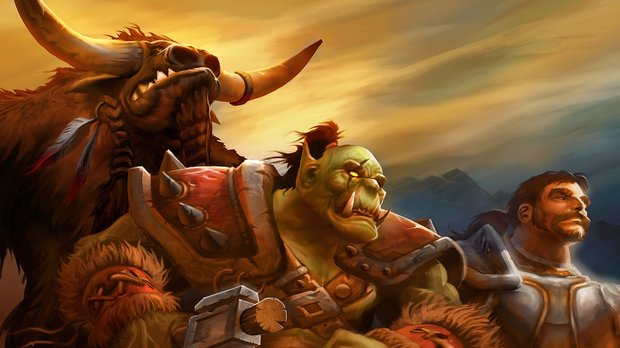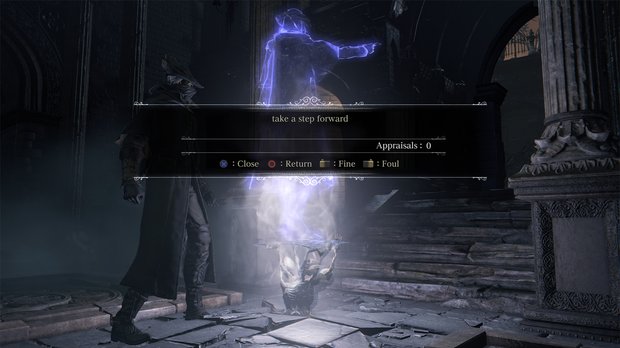Saying less, talking more: my antisocial multiplayer experience
Freedom of speech in multiplayer is overrated. It's hard to argue that when people have the power to say anything to their teammates or opponents online, things can go south pretty quickly. For every affable or witty stranger you meet in a multiplayer match, there seem to be at least five players who derive their self-worth through anonymous aggression. That's one of the many reasons I've come to appreciate the way some games utilize controlled conversation, retaining most of the good and expunging the bad. They force you to be creative in how you communicate, while feeling infinitely safer for an antisocial gamer like me.

I've found myself drawn to two games that implement brilliant systems for limiting - but not eliminating - the dialogue between players. There's Hearthstone, where you can only communicate via a stock selection of six basic emotes, with unique voiceovers to match your chosen character. Meanwhile, you've got the messaging system in Bloodborne, which continues the Souls series' tradition of letting you leave notes for other players. It relies on a fill-in-the-blank format that offers more possibilities than Hearthstone, but still ultimately confines what you're allowed to express to other players. And though I can technically say less with these systems than all-speak text or open voice chat, they make we want to socialize so much more.
If you've never been a shy person, the idea of fearing multiplayer communication might seem strange. And it's not that I fear the conversations themselves; it's more about the ways they can detract from my gameplay experience by putting me in an awkward or uncomfortable position. Nobody likes being berated by strangers, but in the multiplayer arena, people seem to assume that everyone just has a thick skin by necessity, and that whoever's on the other end of that monitor or TV screen can take it. Those assumptions create a space where one person doesn't see the harm in a little smack talk, and another observes something very hostile that they want no part in.

I'll admit, straight-up, that I can be a pretty antisocial guy - the kind who's perfectly content to sit in his room playing games while a party rages in his living room. But I can also be outgoing when the situation calls for it (meeting someone for the first time, a job interview, dating, and so on). It's just that this extroversion can only be maintained for so long before I need a break, and being chatty with people I don't know on the internet feels like an expenditure of that same energy. I still want human connection in games, of course - otherwise, I'd simply avoid multiplayer games altogether. But it feels like I've been conditioned to assume that taking part in an online conversation with a stranger will either detract from my experience or waste my time and mental energy altogether.
Riot Games has put a ton of effort and resources into reducing 'toxic player behavior' in League of Legends, spending what must be thousands of dollars at this point to analyze what makes people act like a-holes, and what subtle tweaks can trick them into curbing their a-hole-ishness. But Hearthstone and Bloodborne sidestep the need for any of these psychological cues or slaps on the virtual wrist for bad sportsmanship, because their mechanics for multiplayer exchanges simply don't permit the kind of behavior that LoL is determined to correct. They solve the problem by preventing it from ever happening in the first place, without taking away the possibility for making connections and building rapport.

The most obvious benefit to limited correspondence between players is the fact that you'll never be on the receiving end of a verbal assault, whether it's some pre-teen screaming at you through a mic or a grown-up spewing profanities and racial epithets like their life depended on it. But there's also a strenuous side to any nice conversations you strike up with strangers. It's that awkward feeling when you want to stop talking, but they don't; when you seriously consider moving someone from your friends list to the blocked list, just to avoid that sinking feeling when they send you an unwanted invite to join them. I can vividly remember playing World of Warcraft and feeling like I owed my time to people who I only knew through guild chat, prioritizing their concerns over my real-life responsibilities. That's pretty unhealthy when it stretches for weeks on end.
My disillusionment with the value of online interaction wasn't just a product of being a hardcore MMO raider, either. There was that one time I was having a friendly chat with a Diablo 2 player, and we got to talking about how we both liked fighting games. For whatever reason, he saw this two-hour conversation as an invitation to ask if he could stay over at my house if he ever attended a tournament nearby. Or the day that I legitimately felt like a worthless piece of subhuman garbage after being berated in League of Legends by a premade group of teammates for losing us the game. Whatever made that Diablo guy feel so attached, or those LoL players so hateful, exchanging words was the root of the problem, and it made me vulnerable. After a while, saying nothing just felt so much safer.
Weekly digests, tales from the communities you love, and more

Despite the way Hearthstone and Bloodborne confine communication between players, their methods feel freeing to someone like me. I can join the conversation, but on my terms. I can put my voice out there, without feeling like it'll attract hatred or false emotional connections from those who might hear it. And because those games provide a set framework for all player-to-player communiqués, they simplify the act of chatting for some while making creative opportunities for others. They may not give you the tools to tell your life story, but they let you express everything you'd ever need to in a game.
Hearthstone's emote system is elegant in its simplicity. Players can enjoy all the niceties of socializing while card battling, courtesy of two simple lines: 'Well Played', and 'Thanks'. That's really all you need to give or receive a heartening complement, which the basis of a good experience for most players. Beyond that, every emote's interpretation is a matter of context, and nothing is limited to a single meaning. 'Sorry' can be a thumbing of the nose at someone when you're beating them down, or genuine sympathy for their game-deciding misplay. 'Thanks' might be the polite response to the aforementioned complement, or a taunt when you've just taken control of your opponent's best card. What you say is determined by when you say it, which is a fascinating mental exercise and a sort of unspoken dialogue between players.

In Bloodborne, communication is never direct; messages crop up throughout the environment, and it's up to you whether you wish to read them or leave some of your own. Even if you're playing solo, it's a brilliant way to share in the same triumphs and tribulations as other players, without ever actually speaking to them. Every time someone rates your message as 'Fine' - a simple, binary expression of approval similar to a Facebook 'Like' or a Reddit upvote - your health fully regenerates, which has actually saved my life and propelled me to victory during a boss fight. That's a pretty significant motivator for players to help each other out by giving guidance, or trying to add a bit of lighthearted humor to the grim, gothic world. The more creative or witty messages are the ones that stick around the longest, and therefore give their author a constant source of reward.
It seems nothing in the modern world is immune to trolling, and these messaging systems are no exception. But they also come with countermeasures that let the player control the flow of distasteful declarations. If one Hearthstone player is spamming emotes in an attempt to annoy, the other can simply squelch their outbursts with two easy clicks, shutting down their ability to communicate without them even knowing it. Hunters in Bloodborne are welcome to leave deceitful or discouraging notes as they see fit, but readers who leave a 'Foul' rating are letting others know that your message is not to be trusted. As for the more... crass word combinations, like "tongue but hole", you'll soon learn that it's usually best not to investigate notes left near NPCs (particularly the female NPCs).

Unlike in team games, ceasing the flow of discourse doesn't make you miss out on crucial info, so there's no negative consequence to abstaining from the conversation entirely. You will never feel unsafe, belittled, or attacked, because these systems don't permit such things. But they still allow interaction and a plainer form of bonding between players, which is pretty much the point of multiplayer. I still want to make those connections, but only in a way that still feels comfortable. Hearthstone and Bloodborne let me do that.
There's a message tucked away in the Hunter's Dream hub area of Bloodborne, lying amidst a string of tutorial-like notes. It explains that messages are simply a way to experience 'the wit and wisdom' of other players. And that rings so true with me: joining in the conversation ensures that you will only be exposed to the best that your fellow gamer has to offer, without any of the ignorance, vitriol, or clinginess that people like me may associate with the exchanges in online matchmaking. That's all most people want from most verbal exchanges, really: the feeling that they can be included and engaged, should they want to take part in the discussion.
Lucas Sullivan is the former US Managing Editor of GamesRadar+. Lucas spent seven years working for GR, starting as an Associate Editor in 2012 before climbing the ranks. He left us in 2019 to pursue a career path on the other side of the fence, joining 2K Games as a Global Content Manager. Lucas doesn't get to write about games like Borderlands and Mafia anymore, but he does get to help make and market them.



